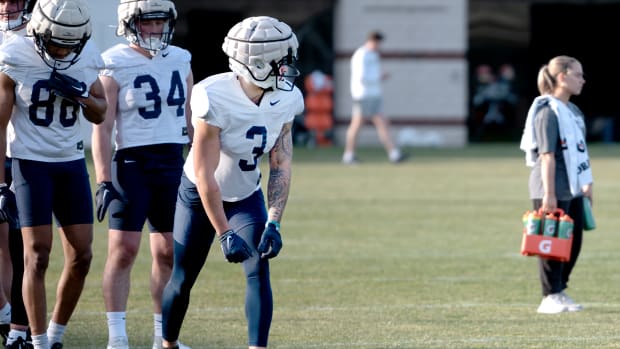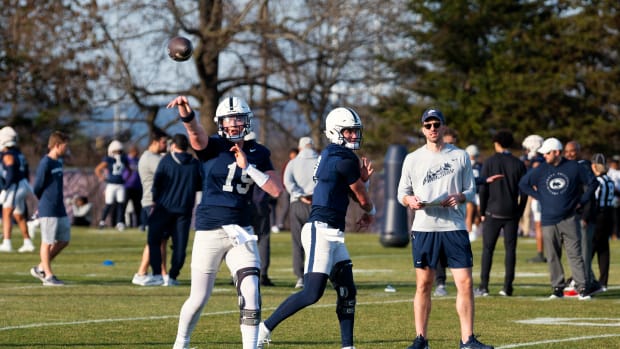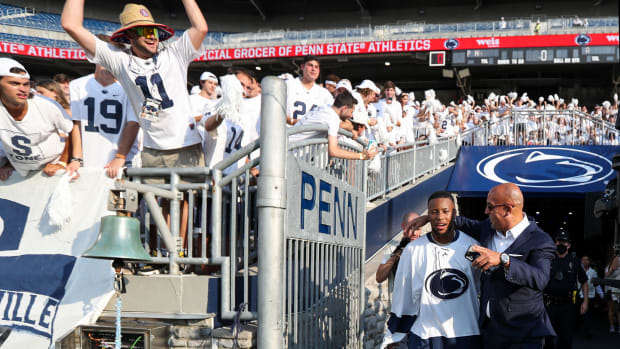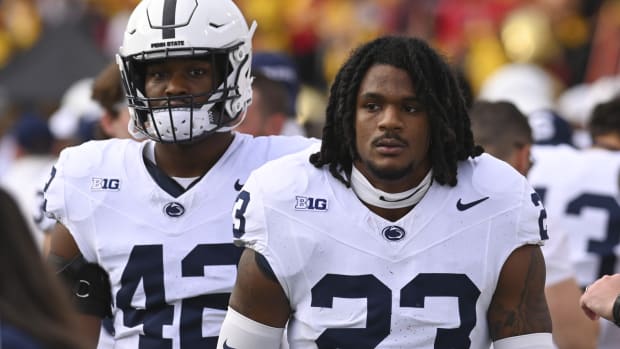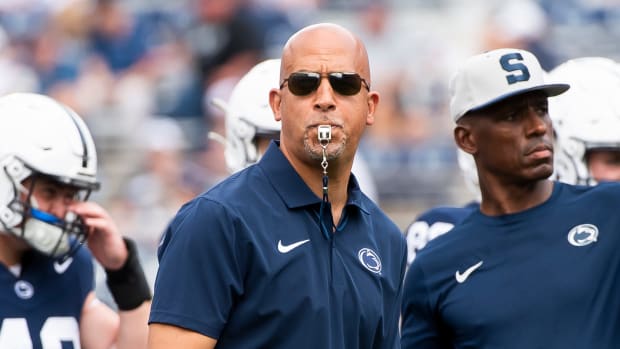At Penn State, a Time to Talk and to Listen
Last October, after a Penn State football player who is black received a letter calling his hair “disgusting,” head coach James Franklin delivered in response.
“The football that I know and love brings people together and embraces differences,” Franklin said. “Black, white, brown, Catholic, Jewish or Muslim, rich or poor, rural or urban, Republican or Democrat, long hair, short hair, no hair. They are all in that locker room together. Teams all over this country are the purest form of humanity that we have. We don't judge. We embrace differences. We live, we learn, we grow, we support and we defend each other. We're a family.”
Recently, Franklin gathered that family again to listen. Franklin held an all-program meeting in which players, coaches and staff members could discuss the deaths of George Floyd, Ahmaud Arbery and Breonna Taylor and the nationwide demonstrations that followed. The Penn State coach spoke but, more important several players said, he listened.
“He’s opened the floor up to us,” Penn State defensive tackle PJ Mustipher said. “He’s taken a step back because, when you think of leaders who have the voice, who have the attention of everybody in the room, [they are] the ones who are always speaking. But coach Franklin, what he’s done that’s been important for us is, he’s taken a step back and he’s allowed us to speak our minds."
Multiple representatives of Penn State athletics released statements following Floyd’s death in Minneapolis. Coaches have addressed the situation, as have Athletic Director Sandy Barbour and the university itself.
Franklin posted a personal statement on Twitter, in which he said he is “gutted by the nation’s most recent tragedies and frustrated by our country’s inaction.” He wrote that “our shared pain is what binds us.”
Baseball coach Rob Cooper announced that he will retire the uniform No. 5 for a season. Floyd wore the number when he played basketball at South Florida Community College (now South Florida State College) in the 1990s.
Former basketball player Lamar Stevens, Penn State’s male athlete of the year, spoke at a demonstration in State College, where he asked people to understand “what it’s like being a kid and having my mom hug me like it’s the last time she’s going to see me every time I walk out the door.” The Daily Collegian, Penn State's student newspaper, covered the protest.
Offensive lineman CJ Thorpe also spoke on campus, saying that “you’re understanding what it’s like to be black in America.” The website Lions247 captured the speech on video.
“We are more than our skin color,” he said. “We are proud of who we are, we are proud of our skin color because of what we got through.”
Mustipher said he was proud of how Thorpe handled the moment, which can be complicated for student-athletes. Football players represent not only themselves but also their families, their teammates and their universities. Mustipher added another important group to the list.
“You also represent young African American kids who aspire to be in our positions down the road,” he said. “So, 20 years down the road, I don’t want kids to feel like they don’t have a voice. I don’t want them to feel like they can’t say what they want to say. We do have to walk a tight rope of what we say, but at the end of the day, we are able to voice our opinions and we can do so. That’s what’s important for me going through all this.”
Last October, Franklin defended the voices of his players, notably safety Jonathan Sutherland, to whom the letter regarding his hair was directed. The program recently released a video that set Franklin’s voice on that day to images of players, coaches and fans coming together around football.
In one image, Franklin embraces the late Wally Triplett, who in 1948 joined teammate Dennie Hoggard in becoming the first black players to play in the Cotton Bowl. The refreshed video underscored a tone set by the players.
“I don’t want my son to grow up in how evil, even though you can’t avoid it honestly,” said senior safety Lamont Wade, who spoke at a demonstration in Pittsburgh on Wednesday. “What I feel like I’m trying to do is diminish it as much as possible, so when the next generation comes up they don’t have to deal with it as much. … I wish [his son] could grow up in some type of environment where everybody does things through love and peace. That’s really like crazy to think about, honestly, but it’s me being a parent for my son. That’s what I have to say, because I wouldn’t want anything less.”
